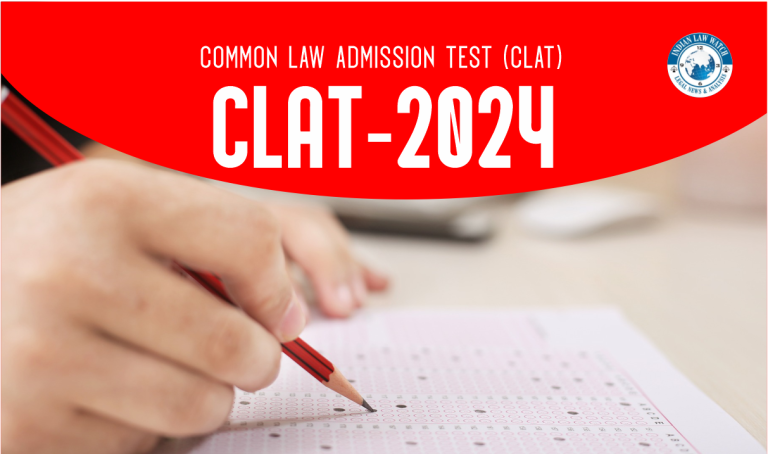
Question
Facts:
On the night intervening 31.08.2019 and 01.09.2019 (“P” strangulated his wife “X” and caused her death at around 11:00 PM on the rooftop of the premises. On 01.09.2019, a case was registered against “P” under Section 302 IPC. “P” was tried by the Court of Sessions. To prove its case, the prosecution examined 10 witnesses.
Main Characters
Deceased – X, Wife of Accused
Accused – P
Son of the deceased – C (7 years of age)
Date/Time of commission of offence – On 31.08.2019 at 11pm
Place – Rooftop of the premises

Issue: Whether P is liable for murder of his wife X under Section 302 of Indian Penal Code (hereinafter referred as “IPC”)?
Rule: According to Section 300 of the Indian Penal Code, apart from the exceptions as laid down in this Section, any person is said to commit murder, if:
- the act by which the death was caused was done with the intention to cause death,
- the act was done with the intention to cause such bodily injury as it is likely to cause death
- the act was done with the intention that the bodily injury so caused is sufficient to cause death in the ordinary course of nature
- the act was done with knowledge that it is so imminently dangerous that in all probabilities it will cause death without any excuse.
However, according to Exception 1 of this section, if act is done by provocation of others, then the offender will be liable for culpable homicide not amounting to murder. However, this provocation has to be grave, weighty and sudden.
Analysis
Defence of Intoxication is not valid
In the given case, according to the statement of P’s defense, he came home late and was under the influence of liquor. Due to high intoxication, when X denied to prepare food for him, he lost his control and gave beatings to X. This shows that P’s act of killing X was caused with the intention of causing bodily injury which in the ordinary course of nature led to X’s death. Here, P could have got the defense of intoxication and incapable to judge what is wrong or right. However, according to Section 85 of IPC, this defence of intoxication can be taken only when intoxication was caused against his will or knowledge. Here, P’s statement is clear that he was under influence of liquor which means he had knowledge about his intoxication and hence, P’s defence of intoxication is vitiated.
Evidentiary Value of Child Witness
According to Section 118 of the Indian Evidence Act, all persons are competent to act as a witness in a case unless if the court deems them to be unfit because of illness, tender age, extreme old years.
There is no law that states that the evidence of a child witness should be rejected, even if found reliable. A child is said to be competent witness provided that the statement of such witness is truthful and corroborated by other prosecution evidence. The only precaution which the Court should bear in mind in assessing the evidence of a child witness is that his demeanour must be like any other competent witness and there must be no likelihood of being tutored.
Therefore, when child witness stated that he saw P strangulating X with the use of ‘saria’ and corroborating evidence was also obtained, hence, the credibility of child witness cannot be rejected.
The crime weapon was also obtained from the crime scene.
Evidentiary value of the Statement of the Accused
The object of recording the statement of the accused under Section 313 of the Criminal Procedure Code (hereinafter referred as “CrPC”) is to put all incriminating evidence to the accused so as to provide him an opportunity to explain such incriminating circumstances appearing against him in the evidence of the prosecution, however, final order of the Court cannot be based merely on the statement made under Section 313 of the CrPC as it cannot be regarded as a substantive piece of evidence. It is settled preposition of law statements given by accused or answers given by accused is not substantive piece of evidence and it is not sole base for convicting the accused. The statements of accused can be used for proper appreciation of evidence to accept or reject.
Hence, when P said that X committed suicide in rage of anger, it cannot be accepted because single incident of quarrel cannot influence X to commit suicide on a trivial topic for not cooking food. Hence, P’s statement is rejected as:
- No evidence of commission of suicide
- Single act of quarrel cannot influence X to commit suicide
Hence, P will be liable for murder under Section 302 of the Indian Penal Code. Here, the exceptions of Section 300 would not attract because:
- Whether intoxication was sought voluntarily or not is not clear.
- The provocation was not grave and sudden which could lead to losing of self-control by P.

Therefore, P will be criminally liable for the offence of murder under Section 302 of the Indian Penal Code.





